In order to ensure effective implementation, and rigorous monitoring and evaluation of the LEAP-RE Programme, two Advisory Board have been set up to support the consortium: the Scientific Advisory Board (SAB), and the Ethical Advisory Board (EAB).
Scientific Advisory Board (SAB)
International experts from non-partner organiszations that shall be consulted to provide their independent and external view on the LEAP RE programme forms the Scientific Advisory Board (SAB).
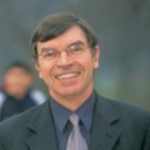
Jean-Pierre Favennec (Consultant WD Cooperation, Professor, IFP School, Dauphine, Foreign Universities) is a specialist in energy, including energy economics, geopolitics and the strategic aspects. He has written a number of papers on these subjects. He is the author of several books: Refining Economics and Management 2001; Research and Production of Oil and Gas: Reserves, Costs, Contracts – 2011;The energy markets (in French)- 2013; The Geopolitics of Energy – 2018 – World Atlas of Energies (in French)- 2015 – Géopolitique et Transition Energétique – 2022 (in French, to be translated in English). Jean-Pierre Favennec is delivering speeches in many conferences in Europe, America, Africa, Asia. He is also à consultant for governments and private companies. He is a recognized expert for Energy in Africa. He is the president of the Association for the Development of Energy in Africa. He published Energy in Africa in 2050 (2015). He is the Director of the Energy Summit in Africa, held each year in Africa.
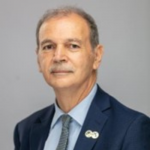
Kamel BenNaceur is the CEO for Nomadia Energy Consulting, based in Abu Dhabi. He is the 2022 President of the Society of Petroleum Engineers, with 140,000 members worldwide. He is also the Chairman for DAMORPHE, a US-based innovative nano-technology company. He was previously the Chief Economist for Abu Dhabi National Oil Company (ADNOC). Prior to that, he was the Director for Sustainability, Technology and Outlooks at the International Energy Agency, where his team developing the World Energy Outlook, the Energy Technology Perspectives, Climate Policy and CCUS publications. In 2014, he was appointed Tunisia’s Minister for Industry, Energy and Mines, where he led the development of new renewable laws, energy efficiency regulations, and rationalization of energy subsidies. He has more than 40 years of experience and knowledge in the energy and industry sectors around the world in both public and private service, and is the (co-)author of 19 books and over 150 publications, in addition to several technology-related patents. He is a receipient of several SPE/AIME Awards. He Is the recipient of the Commandeur de l’Ordre de la Republique (Tunisia), de la Medaille d’Or de la Ville de St Etienne (France).
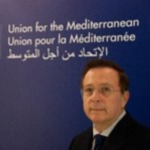
Grammenos Mastrojeni is a diplomat, professor, and writer, has pioneered research and action on societal, geo-strategic and economic impacts of environmental degradation. Until August 2019, Grammenos was Coordinator for the Environment and Head of the Science-Policy Interface with Italian Development Cooperation; MFA head negotiator on water, lands, and oceans, and member of the Delegations to UNFCCC, UNCBD. Co-Chair of the G7 Group on Climate and Fragility, Chair of the UN Mountains Alliance, Co-Chair of the Global Islands Partnership. Currently, Senior Deputy Secretary General of the Union for the Mediterranean, in charge of Energy and Climate Action. Grammenos is a Professor of Environment and Geo-strategy at various think-tanks and universities, and a member of various scientific boards, Grammenos authored numerous articles, official reports, and six books about human impacts of environmental degradation.

Rethabile Mbokodi is an experienced leader and professional in sustainability fraternity (environmental management, social, ethics and governance) with 18 years of experience at various leadership levels. She serves as an immediate Past President of the International Association for Impact Assessment South Africa (IAIAsa), a leading voluntary International Environmental Association. She is also a well-qualified industry Professional Natural Scientist with South African Council for Natural Scientific Professions (SACNASP) and holds a Master of Science in Environmental Management. Rethabile is highly passionate about public speaking, training, facilitating, and lecturing on sustainability related topics.
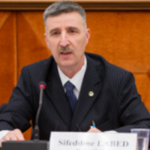
Prof Sifeddine Labed is a Senior Renewable Energies Expert and a Project Manager. He has more than 30 years of experience in different fields linked to Renewable Energies in the EUROMED region. He has over 15 years’ experience as a Senior advisor and Project Manager of governmental programs especially in the energy sector. He conducted more than 30 national and international renewable energies projects with a special focus on: photovoltaic plant engineering, solar system standards, solar device performance and data analysis, green hydrogen production. He has been a focal point of the European Union H2020 projects in Algeria. Sifeddine has also a long career as researcher from the CDER (Renewable Energies Development Centre) for at least 20 years and has been member of the Renewable Energies Expert Panel of the Euro-Med conference in Barcelona. He published more than 30 articles and book chapters in high ranking journals and is a scientific reviewer in high ranking Journals. As a former Director of Valorization, Innovation and Technology Transfer, he was able to coordinate active networks of Universities, Research Centers and SME’s and setup an innovation Forum in Algeria. His communication skills have let him to lead high level education teams in a multi ethnic environment in different continents: Africa, Arab countries and Europe. In addition, he is also an Expert at WIPO in Research Valorization and Technology Transfer; Professor of Renewable Energies Economics – PhD School Polytechnic University – Algiers; Vice President of the Algerian Solar Energy Society and Vice President of the Algerian Hydrogen Association.
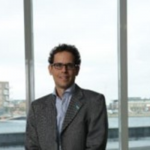
Patrick Nussbaumer is an Industrial Development Officer at the United Nations Industrial Development Organization (UNIDO). Patrick develops and implements technical assistance interventions in developing countries in the area of sustainable energy, environmental management, climate technologies, and climate finance. Prior to joining UNIDO, he worked several years on energy issues in academia, as well as in the private sector. His background is in engineering, and is complemented by a PhD in Environmental Science and Technology.
Ethical Advisory Board (SAB)
The Ethical Advisory Board (EAB) monitors the programme’s compliance with several considerations such as ensuring that the local population will benefit from the implemented projects (short and long term); ensuring data protection and consent procedure, general data protection regulation (compliance; research integrity and responsible research); and other ethical requirements which can be defined.

Jeshika Ramchund is a registered civil engineer with 14 years of experience infrastructure development in South Africa’s consulting engineering sector. She is an advocate for sustainable development as past Chairperson of the Environmental Engineering Division of the South African Institution of Civil Engineering (SAICE) and member of the Sustainable Development Committee for the International Federation of Consulting Engineers (FIDIC). Jeshika is a champion for the role of infrastructure development in achieving the SDG’s and for enhancing the circular economy through the Built Environment. Jeshika serves several local and international engineering and business organisations, chairing and supporting Board Committees in promoting sustainable engineering, diversity and inclusion.
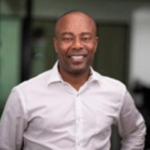
Edward Mungai is a global thought leader in sustainability. An author, researcher, advisor,entrepreneur, and authority on corporate responsibility and sustainable development, he is acclaimed for championing environmental excellence, sustainable consumerism and production, and the triple bottom line. Currently, Edward is Partner and Lead Consultant at KCIC Consulting, a consultancy, and think tank helping clients to integrate sustainability into their businesses and also founder of Inspire leadership that helps people unlock their potential. He has authored several books, the latest being Impact Investing in Africa: A guide to Sustainability for Investors, Institutions, and Entrepreneurs. He teaches Corporate Sustainability and innovation to executives at Strathmore Business School and sits on several boards. Edward holds a PhD in Sustainability from Strathmore University Business School; MBA from Scandinavian International Management Institute(SIMI) in Copenhagen, Denmark and undergraduate degree in business management from Moi University, Kenya.
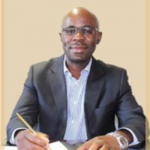
Kudakwashe (Kuda) Ndhlukula is the Executive Director of the SADC Centre for Renewable Energy and Energy Efficiency (SACREEE) since 2016. Before SACREEE, Kuda has worked as a consultant/energy infrastructure expert. Previously he was Programme Officer – Capacity Building for the International Renewable Energy Agency (IRENA) in Abu Dhabi since November 2012. Before joining IRENA, Kuda was the Director of the Renewable Energy and Energy Efficiency Institute (REEEI) in Namibia where he formulated and executed various projects, including managing the off-grid energisation programme (including establishing energy shops), conceptualization and prefeasibility of CSP project, wind mapping, renewable energy and energy policy and regulatory frameworks, Green Building Council Namibia, training of installers and energy experts, amongst many others. Kuda also comes from the power sector background having worked for the Zimbabwe Electricity Supply Authority as an electricity trader. He has over 20 years of experience in the energy sector. Kuda is a Certified Energy Manager and Certified Energy Auditor. He possesses an MSc in Renewable Energy Engineering and an MBA, amongst other qualifications.
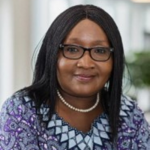
Rose Mwebaza (PhD) is the Director of Climate Technology Centre & Network (CTCN), the implementation arm of the Technology Mechanism of the United Nations Framework Convention on Climate Change, hosted by the United Nations Environment Programme. Dr Mwebaza brings 20 years’ experience providing policy advice on a wide range of climate change, environment and sustainable development issues. She has previously served as Chief Natural Resources Officer at the African Development Bank, and held leadership positions within the UN Development Programme. Dr. Mwebaza was a Lecturer at Makerere University, Kampala, Uganda, for 10 years, serving as the Head of Department for Commercial Law, and Deputy Dean of the Law School. Rose holds a PhD in Environment and Natural Resource Governance from Macquarie University, Sydney, Australia; a Master’s Degree in International Comparative Law (With a Certificate of Academic Excellence) from the University of Florida, U.S.A and a Bachelor of Law Degree (LL.B, Hons.) from Makerere University, Kampala, Uganda.
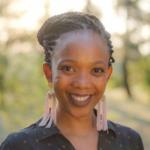
Liapeng Matsau is the Manager of Reporting, Strategy and M&E at the South African Qualifications Authority, and previously was the Deputy Director in the Research Directorate at SAQA. Before joining SAQA, Liapeng was the Deputy Director in Office of Deputy CEO of Research at the Human Sciences Research Council, promoting Research Integrity and supporting Strategy and Planning. She has co-authored a research paper on An Analysis of Retracted Articles with Authors or Co-authors from the African Region: Possible Implications for Training and Awareness Raising and presented preliminary findings of the paper at the 7th World Conference on Research Integrity in 2019. She recently formed part of the Expert Group on the Freedom of scientific research, OECD-GSF project “Integrity and security in the global research ecosystem: Managing conflicts of interest and conflicts of commitment”. She holds a PhD in Sociology from the University of Edinburgh and has worked as Post-Doctoral Researcher at the University of Luxembourg, researching multiculturalism in higher education.
